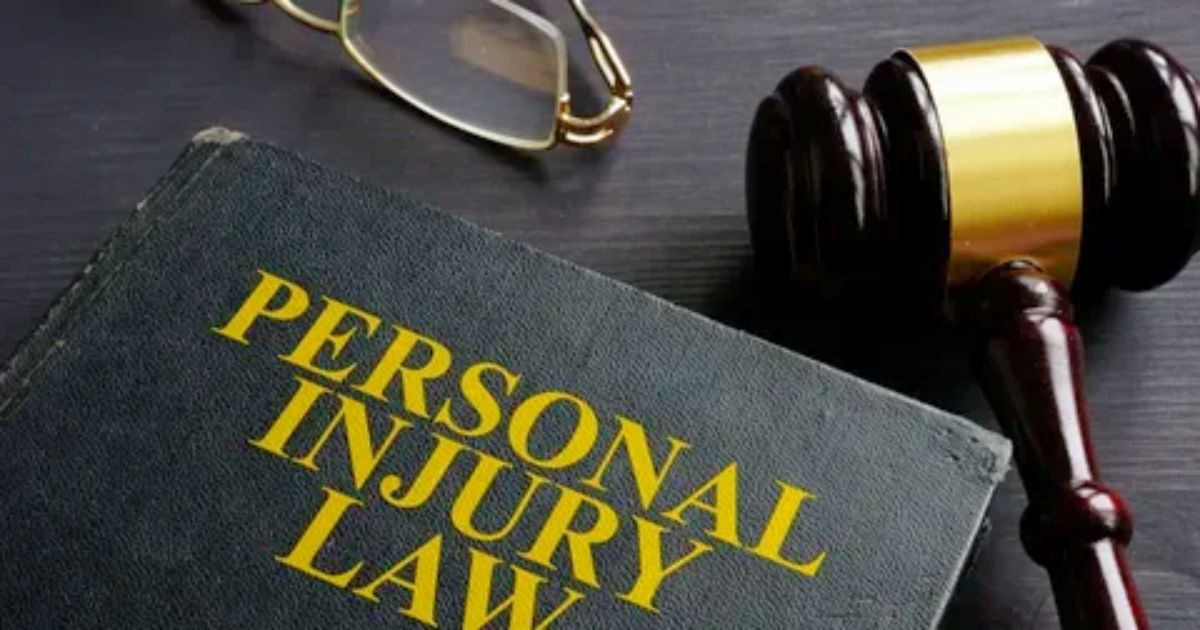When you suffer an injury due to someone else’s neglect finding the right personal injury lawyer is crucial to securing the compensation you deserve. The process of selecting the best attorney can be daunting given the numerous options available. The internet is a powerful tool for finding potential lawyers. Use search engines to look for personal injury lawyers in your area.
One of the best ways to find a reputable personal injury lawyer is through referrals. Ask friends, family members, or colleagues if they have had any positive experiences with personal injury attorneys. Personal recommendations can provide valuable insights into a lawyer’s competence, professionalism and ability to communicate effectively.
However, with careful research and a systematic approach you can identify a lawyer who will effectively advocate for your interests. This guide provides a comprehensive overview of the steps to take when searching for the best personal injury lawyer, highlighting key considerations to help you make an informed decision.
Understanding Your Needs
Before beginning your search, it’s essential to understand your specific legal needs. Personal injury law encompasses various types of cases, including car accidents, medical malpractice, workplace injuries and slip-and-fall incidents. Each category has its nuances and some lawyers specialize in certain types of cases.
Assess the nature of your injury and the circumstances surrounding it. This initial self-assessment will help you narrow down your options to lawyers who have experience handling cases similar to yours. State and local bar associations often have lawyer referral services. These organizations can provide a list of qualified personal injury lawyers in your area.
Researching Potential Lawyers

Start your search by compiling a list of potential lawyers. You can begin with online research, looking at law firm websites, online directories, and legal review platforms. Pay attention to lawyers’ areas of specialization, years of experience, and client testimonials.
Another valuable resource is your personal network. Ask friends, family members, and colleagues if they have any recommendations. Personal referrals can provide insights into a lawyer’s competence and reliability.
Evaluating Credentials
Once you have a list of potential lawyers, it’s time to evaluate their credentials. Check their educational background, professional affiliations, and any additional certifications they may have. Experience is a crucial factor when selecting a personal injury lawyer. Look for lawyers who have handled cases similar to yours. Check their track record of success, including settlements and verdicts.
Membership in professional organizations such as the American Association for Justice or state bar associations indicates a commitment to staying updated on legal developments. Look for any disciplinary actions or complaints filed against them. This information can usually be found on state bar association websites.
Experience and Track Record
Experience is a critical factor when choosing a personal injury lawyer. An attorney with a proven track record in handling cases similar to yours will be better equipped to navigate the complexities of your case. Look for lawyers who have successfully secured substantial settlements or verdicts for their clients.
Many law firms provide case results on their websites, showcasing their successes. During initial consultations, ask about their experience with cases like yours and their success rate. While general practitioners can handle personal injury cases, lawyers who specialize in personal injury law are often better equipped to handle complex cases.
Initial Consultations
Most personal injury lawyers offer free initial consultations. Take advantage of this opportunity to meet with several lawyers before making a decision. During the consultation, discuss the details of your case and ask pertinent questions about their approach, fees, and what you can expect. Most personal injury lawyers offer a free initial consultation. Use this opportunity to meet with potential lawyers and ask important questions.
Pay attention to how well the lawyer listens to your concerns and explains legal concepts. A good lawyer should be able to communicate clearly and provide realistic expectations about your case’s potential outcome. Research the reputation of potential lawyers by reading online reviews and testimonials. Pay attention to feedback regarding their communication skills, professionalism, and ability to achieve favorable outcomes.
Fee Structure
Understanding a lawyer’s fee structure is crucial before making a commitment. Personal injury lawyers typically work on a contingency fee basis, meaning they only get paid if you win your case. The standard contingency fee ranges from 25% to 40% of the settlement amount.
However, this can vary based on the complexity of the case and the lawyer’s reputation. During the initial consultation, ask about any additional costs you might be responsible for, such as court fees or expert witness fees. Make sure you have a clear understanding of the financial arrangements before proceeding.
Communication And Availability
Effective communication is key to a successful attorney-client relationship. Your lawyer should be accessible and responsive to your questions and concerns. During the initial consultation, observe how promptly they return calls or emails and how well they keep you informed about your case’s progress.
A lawyer who is too busy or unresponsive may not be the best choice. Ensure that the lawyer you choose has a clear plan for keeping you updated and involved in your case.
Client References And Reviews
Client testimonials and online reviews can provide valuable insights into a lawyer’s reputation and client satisfaction. Look for reviews on legal directories, social media platforms, and the lawyer’s website. Pay attention to recurring themes in the feedback.
Positive reviews that highlight a lawyer’s professionalism, empathy, and success in securing favorable outcomes are good indicators. Conversely, consistent complaints about poor communication or unsatisfactory results should raise red flags.
Personalized Attention
Some law firms handle a large volume of cases, which can result in clients receiving less personalized attention. It’s important to choose a lawyer who will treat your case with the importance it deserves. During the initial consultation, ask about the lawyer’s caseload and how much time they can dedicate to your case.
A lawyer who is willing to invest time in understanding your situation and developing a tailored legal strategy is more likely to achieve a positive outcome.
Local Expertise
Choosing a lawyer with local expertise can be advantageous. Local lawyers are familiar with state laws, court procedures, and the tendencies of local judges. This knowledge can be invaluable when building your case and negotiating settlements.
Additionally, local lawyers may have established relationships with other legal professionals and experts who can support your case. Consider the lawyer’s proximity to your location and their familiarity with the local legal landscape.
Specialized Knowledge Of Lawyer

In some cases, specialized knowledge can make a significant difference. For example, medical malpractice cases require an understanding of medical terminology and procedures. Similarly, workplace injury cases might benefit from a lawyer with knowledge of occupational safety regulations.
If your case involves a specific area of personal injury law, look for lawyers who have demonstrated expertise in that area. This specialized knowledge can enhance the quality of representation you receive.
Trust Your Instincts
While objective criteria are essential, trusting your instincts is also important. Pay attention to your comfort level and the rapport you establish with the lawyer during the initial consultation. You will be working closely with this person, so it’s crucial to feel confident in their abilities and trust their judgment.
If something feels off or you have doubts, it might be worth exploring other options. Your peace of mind is an important factor in this decision.
Legal Team And Resources
Consider the resources available to the lawyer and their legal team. Personal injury cases often require extensive investigation, expert testimony, and substantial documentation. A well-resourced law firm with experienced support staff and access to expert witnesses can strengthen your case.
During the consultation, ask about the size of the legal team and the resources they can allocate to your case. A lawyer with a robust support system is better positioned to handle complex cases effectively.
Negotiation Skills
Many personal injury cases are resolved through settlements rather than trials. Therefore, a lawyer’s negotiation skills are critical. An experienced negotiator can secure a fair settlement without the need for a lengthy court battle.
Ask about the lawyer’s approach to negotiations and their success rate in settling cases. A lawyer who is skilled in negotiation can help you avoid the stress and uncertainty of a trial while still achieving a favorable outcome.
Transparency And Honesty Of Lawyer

Transparency and honesty are fundamental qualities in a lawyer-client relationship. Your lawyer should provide clear and honest assessments of your case’s strengths and weaknesses. Avoid lawyers who make unrealistic promises or guarantee specific outcomes, as no lawyer can predict the exact result of a case.
A trustworthy lawyer will set realistic expectations and keep you informed about any developments, ensuring you are fully aware of your case’s progress.
Community Involvement
A lawyer’s involvement in the community can provide additional insights into their character and values. Lawyers who actively participate in community service, pro bono work, or local organizations often demonstrate a commitment to helping others.
This community involvement can reflect a lawyer’s dedication to justice and their willingness to go above and beyond for their clients. While not a decisive factor, community involvement can be a positive indicator of a lawyer’s integrity and empathy.
Long-Term Considerations
Finally, consider the long-term implications of your choice. A personal injury case can take months or even years to resolve. Choosing a lawyer with whom you have a strong rapport and trust can make this journey more manageable. After conducting thorough research and meeting with potential lawyers, trust your instincts. Choose a lawyer who not only has the necessary expertise but also makes you feel comfortable and confident.
Additionally, building a relationship with a reliable lawyer can be beneficial for any future legal needs. Think about the potential for a long-term professional relationship when making your decision. Once you have gathered all the information and assessed your options, it’s time to make your decision.
Frequently Asked Questions
How do I know if a personal injury lawyer is experienced enough for my case?
Look for lawyers with a strong track record in handling cases similar to yours. Check their case results, client testimonials, and ask about their experience during the initial consultation.
What should I expect during the initial consultation with a personal injury lawyer?
The initial consultation is an opportunity to discuss your case, ask questions, and assess the lawyer’s suitability. Expect the lawyer to ask about the details of your injury, explain their approach, and discuss fees and potential outcomes.
How Important Are Client Reviews And Testimonials When Choosing A Personal Injury Lawyer?
Client reviews and testimonials provide insights into a lawyer’s reputation and client satisfaction. Positive reviews that highlight a lawyer’s professionalism and success in securing favorable outcomes are good indicators.
What If My Personal Injury Case Goes To Trial?
If your case goes to trial, it’s important to have a lawyer with trial experience. Ask about their success rate in litigating cases and their readiness to take your case to court if necessary.
Conclusion
Finding the best personal injury lawyer requires careful research and consideration of various factors, including experience, communication, and compatibility with your goals. By following the steps outlined in this guide, you can identify a lawyer who will effectively advocate for your interests and help you secure the compensation you deserve.
Remember to trust your instincts and prioritize a lawyer who demonstrates professionalism, transparency, and dedication to your case. With the right legal representation, you can navigate the complexities of your personal injury claim with confidence. A personal injury case can take months or even years to resolve. Choosing a lawyer with whom you have a strong rapport and trust can make this journey more manageable.
